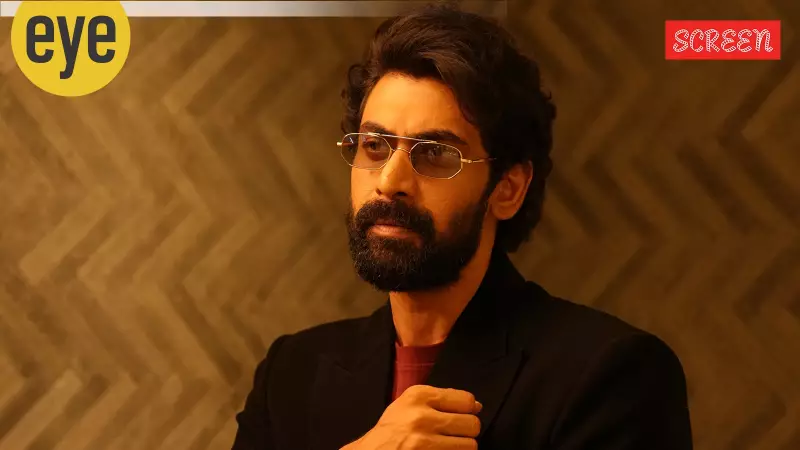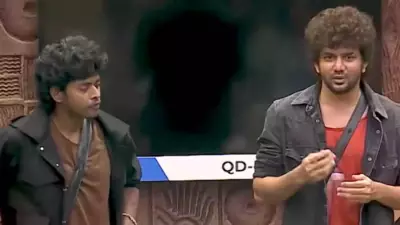
In an era dominated by artificial intelligence and big-budget spectacles, acclaimed actor and producer Rana Daggubati is making a strategic push for emotionally rich, story-driven Indian cinema through his production venture Spirit Media. The Baahubali star is championing filmmakers who prioritize compelling narratives over commercial considerations, aiming to create a diverse cinematic landscape that transcends regional boundaries.
The Vision Behind Spirit Media's New Direction
Daggubati, who gained pan-Indian popularity as Bhallaladeva in the blockbuster Baahubali (2015), is now channeling his experience toward building an organization that supports independent-spirited cinema. "This is a constructive way of me trying to create an organisation that can support cinema and help create a group of producers that can take stories forward," Daggubati explained in a recent interview.
His approach is refreshingly simple: the story and filmmaker's vision take precedence over budget considerations. "Whether it is a Rs 50 crore or a Rs 5 crore film, it doesn't matter as long as the creator has the vision to build something unique and interesting," he emphasized. This philosophy extends to the talent Spirit Media collaborates with, including established actors like Dulquer Salmaan and Manoj Bajpayee, whom Daggubati describes as "supporters of independent storytelling."
Diverse Slate of Upcoming Projects
Spirit Media has already set its ambitious plans in motion with several notable projects. The studio's first home production, Kaantha—a Tamil period-noir thriller directed by Selvamani Selvaraj featuring Dulquer Salmaan—premiered in theaters on November 14, 2025.
The production house has also generated significant buzz with the announcement of their first Hindi film—an adaptation of Aravind Adiga's acclaimed novel "Last Man in Tower" to be directed by Ben Rekhi. The book's themes of greed and Mumbai's real estate struggles resonated personally with Daggubati, who has lived intermittently in Mumbai for the past decade. "Every time I get an apartment, that building goes for redevelopment and I have to move," he shared, highlighting the universal relevance of the story about a retired schoolteacher who refuses to vacate his building despite a lucrative offer from a developer.
Spirit Media's upcoming Telugu releases showcase the diversity Daggubati is aiming for, including the pulpy dark comedy Dark Chocolate, psychological drama Psych Siddhartha, and romantic thriller Premante.
Breaking Regional Barriers and Global Aspirations
Through Spirit Media's new focus, Daggubati aims to blur the divisions that have traditionally separated audiences of different Indian regions. "In recent years, this barrier has been broken as Telugu and Tamil films now have an audience across the country," he observed, though he noted that earlier crossover successes like Mani Ratnam's Roja (1992) and Bombay (1995) or Ram Gopal Varma's Shiva (1990) didn't create a sustained trend.
Daggubati believes Baahubali demonstrated that Indian films could appeal to nationwide audiences, and he's now looking beyond domestic borders. He points to the international success of films like RRR (2022) and the global popularity of Korean cinema as evidence that Indian stories can achieve similar reach. "Today, the whole world watches Korean films like it is their own. So, there is a possibility for us to create Indian stories in that same manner and reach a global audience," he stated optimistically.
This global perspective is already evident in Spirit Media's support for indie films like Payal Kapadia's All We Imagine As Light (2024) and Rohan Kanawade's Sabar Bonda (2025), both of which traveled to international festivals before their Indian theatrical releases.
A Lifelong Connection to Cinema
Coming from a film family—as the son of producer D Suresh Babu and nephew of actor Venkatesh—Daggubati's connection to cinema runs deep. "I have learned everything about life—stories, characters, people and behaviour—through cinema," he revealed. He believes cinema offers far more than mere entertainment, despite the proliferation of content formats today.
"Today, there is long-formatted streaming, there is short content and so many more options. Yet, the hold of large-format entertainment on a big screen, where you watch the film as a community, is still the best thing that is possible," Daggubati expressed, underscoring his commitment to theatrical experiences.
While Daggubati produced his first independent Telugu film Bommalata (A Belly Full of Dreams) back in 2004, his current approach through Spirit Media represents a more concentrated and strategic effort to support diverse storytelling. Rather than limiting himself to acting in different types of movies, he sees his role as "channeling stories that are independent and have a unique voice."
Daggubati's vision for Indian cinema is ultimately about variety and coexistence. "What the audience really wants is variety. They want to watch different things and feel different things," he asserted, positioning Spirit Media as a catalyst for the rich, diverse cinematic ecosystem that modern Indian audiences deserve.





